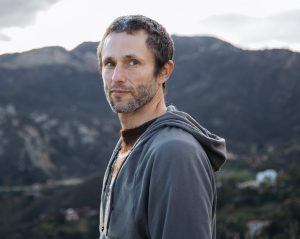
Charles Eisenstein is a teacher, speaker and author of several books including Climate: A New Story, Sacred Economics and The More Beautiful World Our Hearts Know is Possible. Charles and I set out to have a discussion embracing as many paradoxes, taboos and uncertainties as possible, and I think we did just that. We discuss the addictive nature of control, the similarities between skeptics and believers, the role we play in writing personal and collective narratives, the inevitable crisis that precedes any lasting change and the importance of seeing our lives within the context of much greater and more meaningful cycles.
Find out more about Charles at charleseisenstein.org and on Instagram and Twitter.
Charles’ Book Recommendations: Cutting Through Spiritual Materialism by Chögyam Trungpa and Sakyong Mipham Rinpoche and and The Invisible Rainbow by Arthur Firstenberg
Songs featured: “The Times They Are A Changin”” by Medeski Scofield Martin & Wood and “The Louder I Call, The Faster It Runs” by Wye Oak.
How to support the show:
Rate, review and subscribe to the podcast on iTunes!
Support my work on Patreon and get access to perks like an exclusive WhatsApp group chat just for patrons!

3 Comments
Amazing!
Interesting devil’s advocate/academic train of thought in regards to practical, scientific thinking regarding COVID-19 response, but talking about embracing death more as a society in the midst of a global pandemic is coming from a point of privilege being a healthy adult from within a country with advanced medical facilities. Social distancing is a short-term inconvenience that is an act of kindness to healthcare workers and the people around us (things can get, and have been much worse in the past i.e. Spanish flu). This episode should have incorporated more rebuttal. We cannot kid ourselves that we don’t live in an interconnected world where we rely on each other (in episode #50 population and community were discussed). It is selfish to talk about one’s own autonomy in search of an ideal that is borne from one’s own opinion at the expense of the people and the community who support you (we all buy groceries from a store people). Social distancing DOES WORK – it stops the spread of human-human disease transmission. Maybe after this event has been subdued can we discuss the human cultural and psychological learned/innate fear response to death. In the meantime though, to suggest that we shouldn’t place too much importance on extending life is fine until it is you or your loved ones effected. Maybe after establishing a proper framework to lift people out of poverty (who don’t have access to healthcare) can we talk about weighing pros and cons of quality-of-life to life extension in the midst of COVID (not inflicting a scenario of increased death percentage onto someone else who doesn’t have that choice). I have not chosen to be born into a life of privilege, and others have not chosen to be born into a life of hardship (an inequality that society through its own greed has exacerbated). This event is not poking a hole at the way we treat death but the way we value life and what is fair (is it ok that some people are just lucky?)
Hey there. Thanks for your comment. I don’t actually disagree with anything you’ve outlined in regard to the importance of and (likely) necessity of social distancing as it relates to minimizing the transfer of viral infections. I also don’t disagree that I am speaking from a privileged perspective (both Charles and I specified that on the episode multiple times). However, I’d argue that the entire purpose of my podcast is to have nuanced conversations that don’t often occur within the mainstream, conventional dialogue. I strive to embrace paradox, nuance and taboo in nearly every single episode. My world view is one that holds multiple truths at once and that believes asking difficult questions in difficult times is the way we challenge ourselves to find solutions. (Solutions which are never narrow-minded or simplistic.) Where is the motivation to discuss the human cultural and psychological learned/innate fear response to death if not during an event that forces us to come face to face with death? What about having these discussions at this time KEEP us from enacting immediate and necessary solutions like social distancing? Both can coexist. Both should coexist. Life is complex and I intend to embrace those complexities wherever I can… even when it’s uncomfortable and vulnerable to do so.